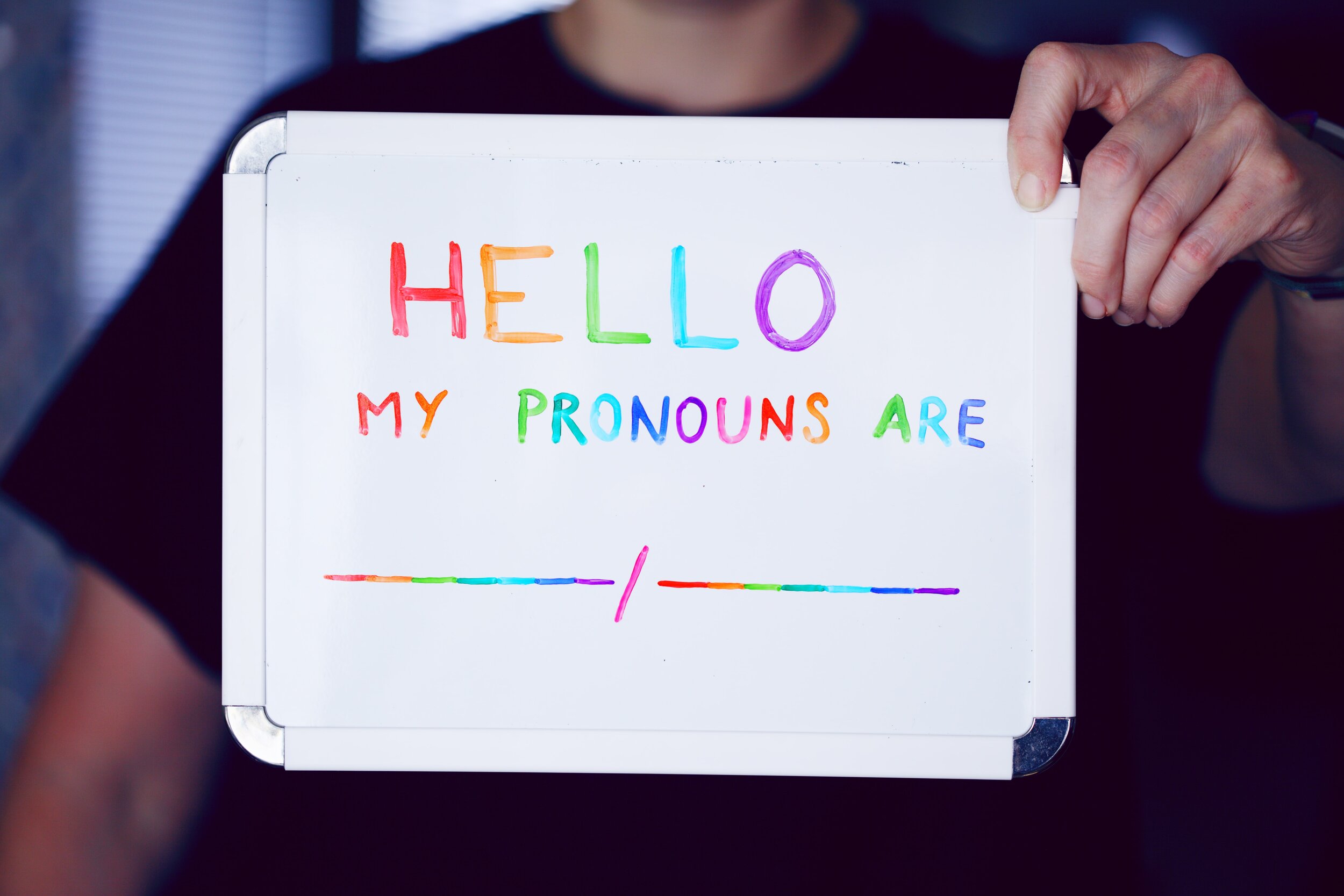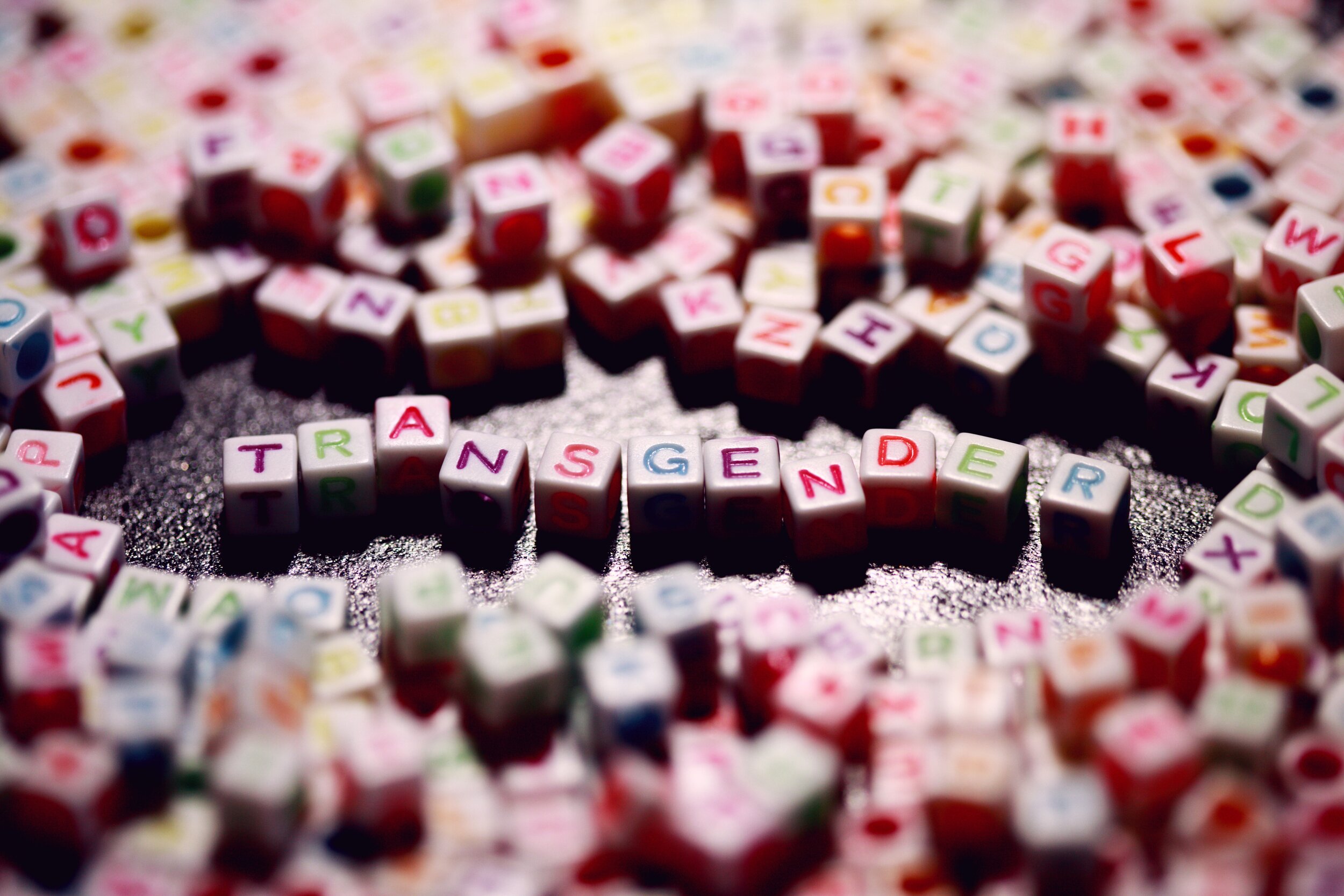Trans Allyship 101 - Happy Trans Day of Visibility!
You may have seen some shocking things in the news lately about transgender people and how life has been pretty hard for our community.
From discrimination to harassment, the daily struggle of living in an unaccepting world directly impacts the health of many transgender people. With all of this hanging over us, there’s not much room to celebrate trans lives or trans people. If you know someone who is transgender, and you want to help them through this difficult time and celebrate them as they are, then it’s important to learn how to be an effective ally.
Photo credit: Sharon Mccutcheon on Unsplash
A Theory of Practice:
So, you want to be a trans ally? Wonderful. As a trans person, I’m so happy that you want to help out our community. But there’s a couple of things we should talk about first just to make sure we understand each other.
The first thing to know is that “being an ally” is an active practice, allyship is more something that you do rather than something that you are. This idea of allyship is very general and is applicable to most, if not all communities. An ally is someone who actively works for the social and political betterment of a group that they themselves are not a part of. Sounds simple enough, right?
But there’s a lot of traps for new players hiding behind that simplicity. For example, I say: “the political and social betterment of a group” but who decides what those goals are? Who decides what counts as “betterment”? Who decides when a movement has achieved its aim?
The answer? The people themselves, not their allies. It’s up to the people as a community to decide what political and social betterment is, and what it is not. This means that to be a good and effective ally, one has to actively listen to the conversations happening within the community and respect the conclusions drawn. So an ally must- first and foremost- listen and respond to the genuine needs of the community.
Here we encounter another important point. Our time and resources are finite, and so are yours. So of all the work that the community needs done, choose to work on something that’s within your capabilities. If you don’t have the time or energy to organise and join marches, that’s ok, there’s always other work that we need done. There are also many small, and not so small, everyday things that you can do to support your trans friends and family.
So, here’s a tricky question. What happens when you listen to the needs of the community, and what you hear is actively contradictory? What if you’re a practicing LGBTQIA+ ally and you hear some people arguing bisexuality is transphobic, so people should move beyond that label, and some people arguing that it isn’t. How do you as an ally help?
First of all, remember that the LGBTQIA+ community, as a term, is a shorthand for what is actually a very large and very diverse set of people with conflicting needs. That’s how communities like ours have always been. So, if you practice allyship long enough, you will encounter this and you will need to decide what to do.
Photo credit: Sharon Mccutcheon on Unsplash
My advice? Ask: “Would this action improve the social and political conditions for most LGBTQIA+ people?” Then answer is no. Many trans people, and the people we love, identify and use the label bisexual, and it’s not generally understood as trans-exclusive. Trying to police how we describe ourselves or to drive a wedge between trans people and those who love us only serves to create more tension and infighting, which in no way improves our social and political condition.
Here we reach the last, and most important point in this section. So you want to be a trans ally? Great. But you better be prepared to be an ally to all trans people, not just trans men and women, not just to people who pass. All of us. That means supporting and listening to non-binary, genderqueer and genderfluid people. This means supporting gay trans people, straight trans people, bisexual, pansexual and asexual trans people. Most of all, it means advocate on behalf of disabled, Indigenous, neurodivergent, and non-white trans people.
Historically many of these groups have been marginalised within a movement which claimed, at least in part, to be working for their liberation. So, here's the bottom line, it's not up to allies to decide who belongs in a group. If you want to be our ally, great! But you have to support all of us, regardless of whether or not we fit your idea of what a trans person 'should' be."
Make sense? Lovely. Let’s get practical.
The Everyday:
1. Names and pronouns
Normalise the practice of pronoun sharing, please. Trans people are not the only people with pronouns, everyone has them, so get into a habit of sharing them when you introduce yourself. “Hi, my name’s Eliot, my pronouns are she/her/they/them” is how I introduce myself when I judge it to be safe to do so. The more normal this practice becomes, the easier it is for us to move through the world.
All it takes is some effort on your part to remember what people’s names and pronouns are and you’re all set! Some pronouns will be easier to use than others, if you’re not used to a singular “they” it can be a bit tricky, and neopronouns like “xe, ve/vi” can take some time to get used to.
But I promise you, we can tell. Trans people can tell when someone is making an effort to get their pronouns right and accidentally making mistakes versus someone who doesn’t care and is deliberately being rude. We see the effort you make, know that it is appreciated and valued.
Something to note - trans people’s old names, their deadnames, are dead. Names given at birth are for babies and legal names are for legal documents. If a trans person tells you what they want to be called, that’s what you call them, it’s not a ‘preferred’ name, it’s their name in every way that matters. So treat it as such.
2. Affirmation
One thing I don’t often see on “how to be a trans ally” pages is a discussion of affirmation. In general, trans people can feel dysphoric or insecure about our genders or feel really awkward about the way we are seen and treated. So, here’s how you might help.
Photo credit: Sharon Mccutcheon on Unsplash
Ask your trans friends, what words and actions make them feel good about themselves. For me, it’s really easy. I like words which have traditionally feminine associations, cute, pretty, soft or elegant. They make me feel seen and valued for who I am. So ask the trans people in your life what language makes them feel good about themselves, and use that.
Remember to check in from time to time with them to see if those names and adjectives still feel right. Gender expression is often developing as we learn more about ourselves, so it’s important to have that conversation regularly in a kind and open way.
Gender affirmation isn’t just about trans people though, cis people do it to. As a practice, gender affirmation is powerful. We live in a world that tells us we are inadequate on every front, including in our gender, in order to try and sell us solutions. So find what works for you and your friends and learn how to be comfortable, just as you are.
3. Learning
Allyship is a lifelong process of learning. You cannot and will not ever know everything about a community or about anything, in general. There is simply too much information, and too little time. However, this doesn’t mean that you can’t know some things. Certainly, whenever a debate about trans issues ends up in the public eye, I have to sigh and dig up my notes from six years ago.
The average person’s understanding of trans issues and theory is not great, and even within the LGBTQIA+ community, misconceptions abound. So, here's what I personally think would be the most helpful thing for you to do.
Hit the library, or YouTube, or the internet. You read, you learn, and you understand. With consent, you ask us thoughtful and interesting questions about our perspective and lived experience. You listen to our feedback. You are allowed to ask questions and seek clarification, but it really helps if you have tried to do the work yourself, rather than expecting us to do it. You learn as much as you can and you go out and share it.
Learning about how people different from you live their lives is enormously inspiring and eye-opening. It has the potential to change lives and reshape the world we live in. But there are too few trans people, and we already have so many other personal things to deal with, that we cannot possibly teach everyone all we would like them to know.
So that’s where you come in. Do some readings, ask some questions, and start some conversations. You’ll make mistakes. Everyone does. That’s fine, it’s normal and it’s necessary. The important thing is that you keep trying and keep thinking. The worst thing you can do as an ally, is think you know everything. There’s always more to learn.
You might ask: “That’s great, Eliot, but where do I start?” That’s a fair question. Below is a list of a few of my favourite trans related creators and resources.
Armed with this knowledge, you can correct harmful stereotypes, and engage in deep, thoughtful and respectful conversations with the trans people in your life. Doesn’t that sound wonderful?
Now that we understand each other, welcome! Welcome to trans allyship.
Recommendations
Articles:
Videos
Novels:
Dreadnought and Sovereign by April Daniels.
Girl, Woman, Other by Bernardine Evaristo.
Fun Home by Alison Bechdel
Loveless by Alice Oseman
History and Theory:
Whipping Girl by Julia Serano
Transgender History by Susan Stryker
Gender Trouble by Judith Butler
Research, Statistics and Papers:
WORDS: ELIOT WALTON (they/them)
PHOTOGRAPHY: UNSPLASH
PHOTOGRAPHY: UNSPLASH






